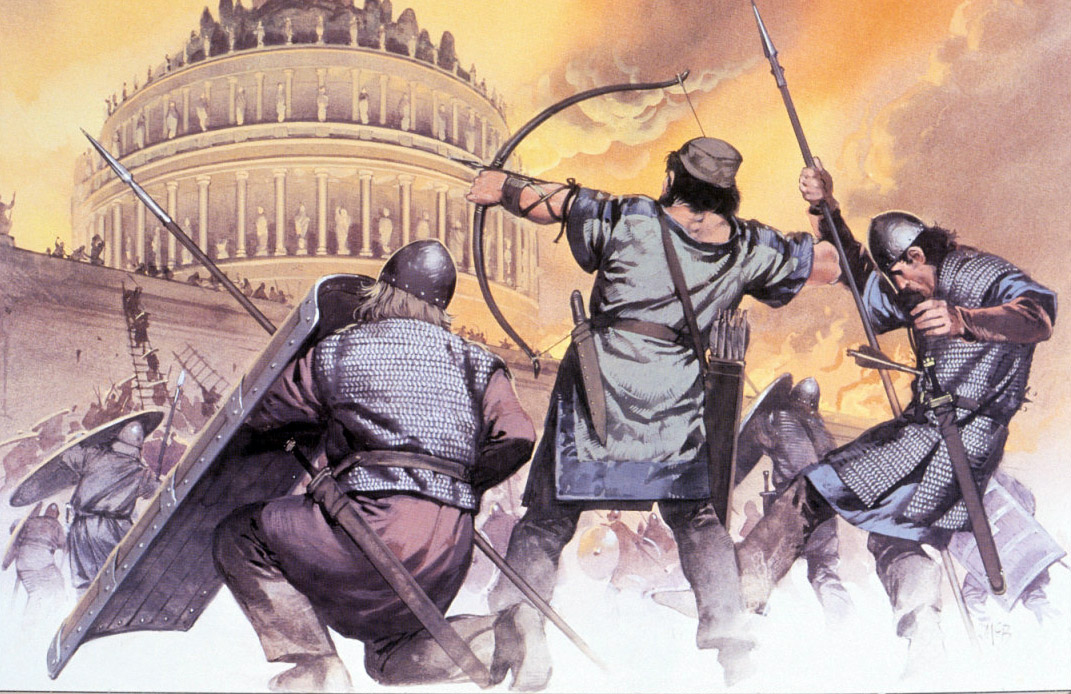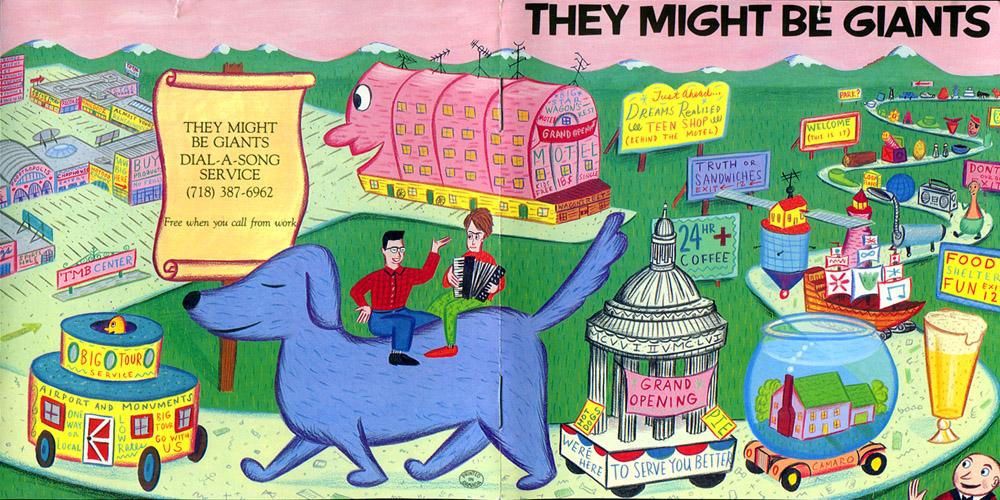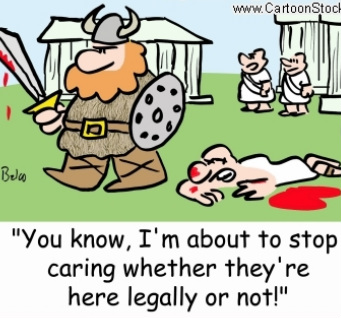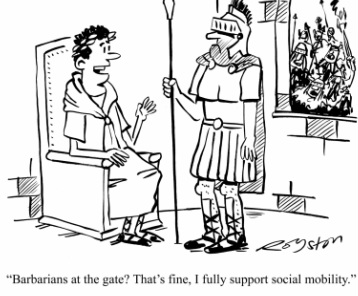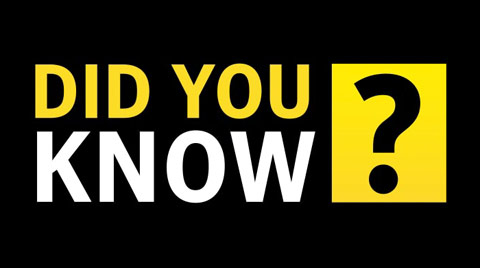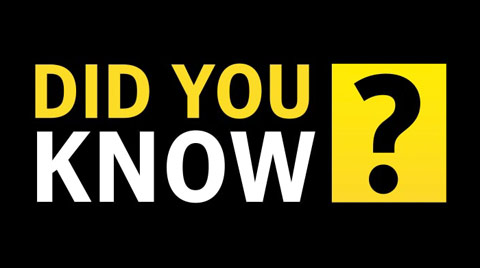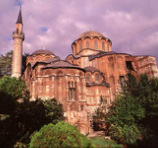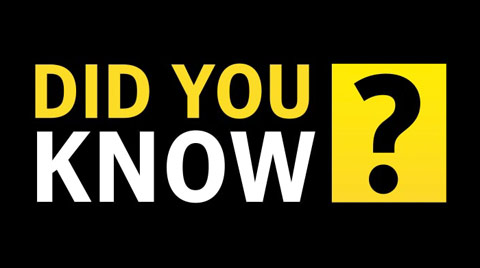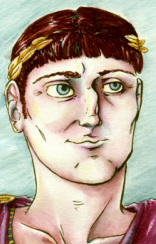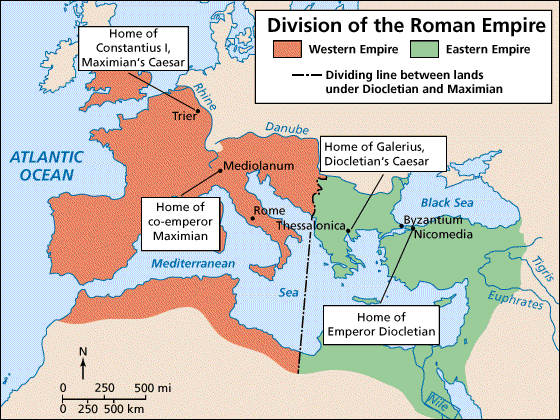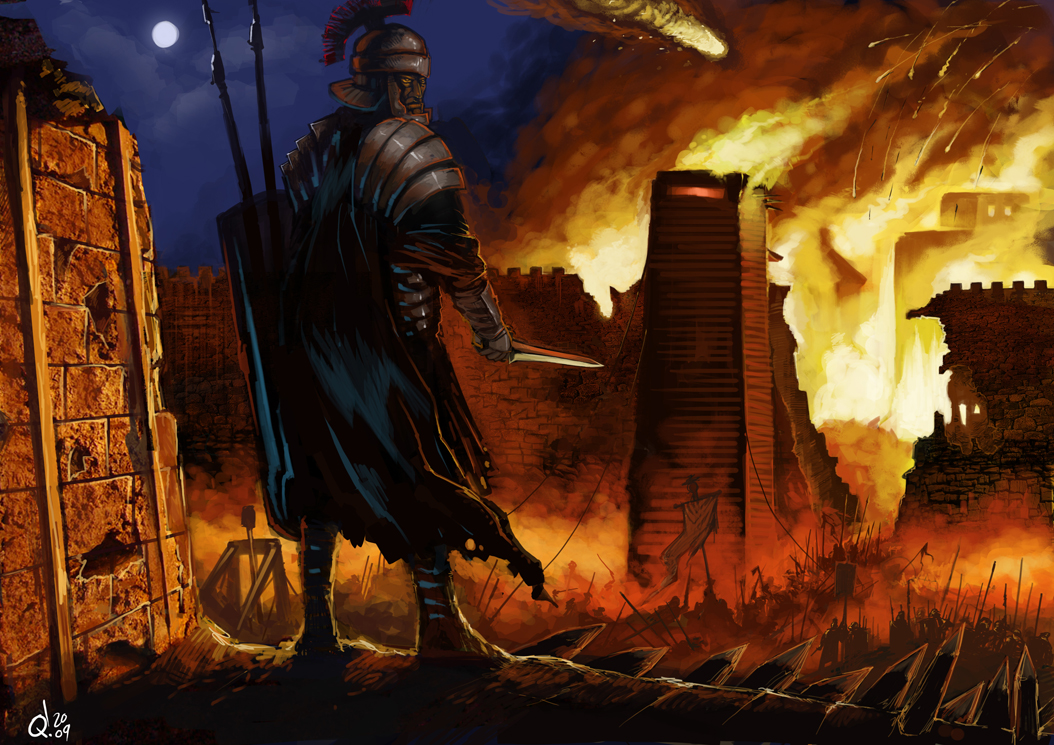Scramblin thru... the Fall of Rome
Down goes Rome! Down goes Rome!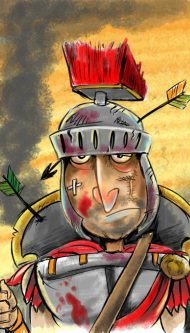
By the 3rd Century, the Roman Empire had grown so large that no one emperor could control and protect it all the time. This became clear when the Empire was attacked on two fronts: by the Persians from the east and the Germans from the north. This situation lasted until Emperor Diocletian came to power in 284 AD. He appointed a Co-Emperor to rule with him. This split the Empire into two parts, an Eastern half and a Western half, each with its own Emperor.
Military need led the Romans to incorporate German warriors into their army. German settlers were also assimilated into the Empire, but there were also growing tensions. The Romans needed them for the army and as a labor force, but they also resented them. In the 5th Century, a Germanic tribe called the Visigoths asked to settle in the Empire. They were allowed to enter the Empire... but then were ignored and left to starve. In retaliation, the Visigoths marched to Rome, which they attacked and plundered. Another tribe, the Goths, sacked Rome in 410. Soon, the Western Empire was under the control of Germanic kings. In 476, the Western Emperor was deposed and not replaced. After that, there was only one Roman Emperor, and he was in Constantinople (which is Istanbul today), the capital of the East. And just like that... the Roman Empire was "over". |
At the Roman Empire's zenith in 116 AD, 25% of the world's population lived and died under the rule of the Caesars. Not until 1921 did another empire surpass the vastness and power of Rome. This was the British Empire. (And then a bunch of rag-tag farmers beat the British, but that's a story for another day...)
In 330 AD, Emperor Constantine the Great moved the capital from Rome to a place that was safer from invasion. He chose Byzantium in Istanbul, Turkey and renamed it Constantinople, which means "City of Constantine".
When Constantine died in 337 AD, Constantinople was the true capital of the Roman Empire. This split brought about a big cultural change. The Eastern Roman Empire was influenced by Greece. It became so different that after the West fell, it became known as the Byzantine Empire. Its people, though, still called themselves "Romans". People in Europe, however, called them "Greeks" or "Byzantines".
The Byzantine Empire lasted until 1453 AD when it fell to the Ottoman Empire. |

